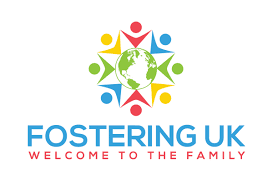Unique Challenges Foster Families Face
According to the UKF (UK fostering agency) or other local fostering agencies, While some parents aspire to take on the position of foster parents, other families inadvertently fill it when a relative is no longer able to remain with their biological parents.
Foster kid upbringing resembles biological child raising in many ways. Like any other child, foster children require structure, discipline, love, and direction. Kids also have friends, homework, and extracurricular activities.
Yet there are certain particular difficulties that come with raising foster children. And it's critical for foster parents to comprehend the difficulties they can experience so they are prepared to support the development of foster children.
Obtaining a License
Foster parents must go through a difficult licencing procedure that differs from state to state. It comprises a home inspection, home studies, recommendations from people, and background checks. Homes must follow safety regulations, and a fire marshal may inspect them. If a house doesn't meet certain requirements, repairs could be required, such as replacing windows or railings.
Uncertainty
Due to the uncertainty surrounding a child's living circumstances, foster families frequently find it challenging to make long-term plans. Though it frequently takes several months or even years, about 51% of foster children eventually reunite with their primary carers. Other kids might be adopted, placed with relatives, transferred to group homes, or kept in foster care. Everyone in the family may experience stress as a result of the frequent court dates, hearings, and modifications to the plan that occur during the process. Foster parents frequently have to respond to challenging queries like "Will I be adopted?" and "When may I live with my mom again?"
Visiting Birth Families
Foster children who may one day be reunited with their birth families are allowed to visit their parents or siblings. These meetings could happen in the birth family's house or in a safe, neutral venue. Routines of the foster family may be disrupted by the visitation schedule, and some foster families might have to put up with sporadic visits. Foster parents may also need to support children as they navigate the emotional ups and downs of bad visits and frequent, abrupt schedule changes for visitation.
Rules and Regulations
State-specific regulations on foster care services can be onerous for some families and vary widely. For instance, children in foster care might not be permitted to travel on boats or stay over at friends' houses and might only be allowed to attend childcare facilities that are licenced. Medication and alcohol might also need to be kept in locked cupboards. Foster children are also prohibited from visiting other people's homes without a background check, and the guardian might want the parents' names and addresses. Because of this, it may be difficult to arrange last-minute playdates, embarrassing for older kids, and perplexing for other families.
Getting Permission From Guardians
Foster parents are not considered legal guardians. As a result, individuals typically are unable to sign legal documents.
To get the child's state-appointed guardian to sign documents for the doctor or simply to get permission for the youngster to go on a field trip, the foster carer may need to get in touch with the child.
Reaching the guardian can occasionally be challenging, particularly on weekends and in the evenings. Because of this, often basic things seem difficult.
Frequent Appointments
To meet the requirements of foster children who require special services like speech therapy, occupational therapy, medication management, and counselling, foster families may need to have flexible schedules. Foster parents who work full-time may also have to take on the burden of driving kids to and from all of their appointments, which can be challenging.
Emotional and Behavioral Challenges
Foster children may have been subjected to abuse or neglect, which has resulted in emotional and behavioural issues. To assist them in controlling their emotions and conduct, specific disciplining techniques or therapeutic interventions may be required. Some foster parents undergo specialised training to deal with specific challenges, such as violent conduct, ADHD, or reactive attachment disorder.
Unknown History
Although child protective services make every effort to learn as much as they can about a kid's past, there are frequently significant information gaps. Pregnancy history, developmental history, genetic history, trauma history, and attachment history of the birth mother are a few of these. Adults might not be aware of a child's background of domestic violence, sexual abuse, physical abuse, or neglect. Some mental health conditions, developmental disabilities, or physical health issues may not become apparent until a child has lived in a foster home for a considerable amount of time.
Saying Goodbye
Due to frequent transitions and changes in placement, foster families who take in multiple foster children may frequently encounter disruptions to their family life. Foster parents might not be aware of what happens to a kid after they leave their care, which could cause distress for the entire family. Foster families may experience significant burnout, thus it is crucial that everyone prioritises their own mental health while managing their emotions.




Comments
Post a Comment